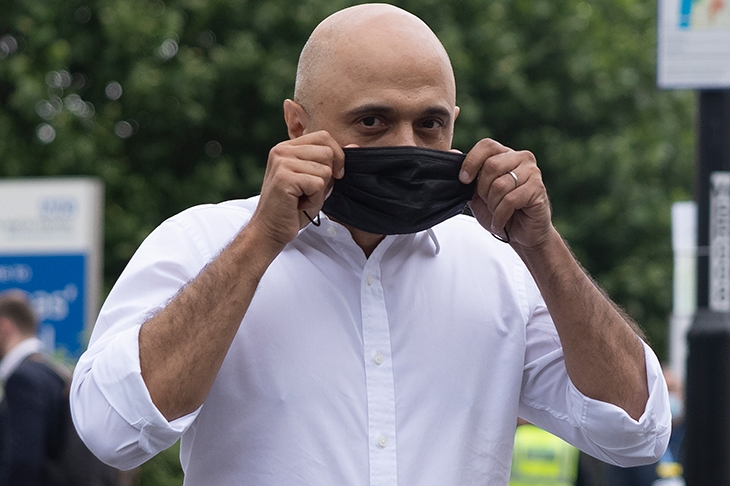You always remember when a prime minister calls you to ask you to take on a new role, and you remember the reaction of your loved ones, too. My mum was delighted — like many Asian mothers she wanted at least one of her five sons to be a doctor and she was thrilled that I would be, as she put it, ‘working in healthcare’ after all these years. My wife was concerned about the pressures of the role and what it might mean for our family. And my daughter was worried that I might not look the pinnacle of health walking through the famous Downing Street door, due to my limp after an unfortunate slip during ‘walk your children to school week’.
Although it’s been a real tonic to spend more quality time with my family after several intense years in government, I have to admit it was also frustrating to be sitting on the sidelines at this important time for the nation. After a few months, I was bouncing off the walls and, much to my relief (and theirs), I was able to channel this energy into my work with Harvard University on pandemics. This included speaking to world leaders and leading scientists, looking at how governments can better respond to emerging threats. It’s a real honor to have the opportunity to take forward what I’ve learnt and deal with difficult decisions in real-time rather than in the abstract. While I didn’t hesitate to accept the role of health secretary, I’m acutely aware of the scale of the challenge we face. I decided from the outset to do everything I can to be straight with people about what lies ahead — the huge simultaneous tasks of tackling the National Health Service backlog, making the vital reforms we all know are needed to social care, and, of course, getting us out of this pandemic.
Ever since first entering my office on a Sunday morning, it’s been a whirlwind of activity. I’ve visited hospitals and vaccination centers, marked the anniversary of the NHS at St Paul’s Cathedral, and eaten samosas and spoken broken Punjabi in our care homes. Listening to frontline NHS and social care staff has been inspiring — and I am determined to do all I can to support them. I’ve also had to get used to doing media interviews again. When I was asked what my favorite tune of lockdown was, my advisers vetoed my genuine choice (from a band called Cigarettes After Sex) at a speed that should qualify them for the Tokyo Olympics.
As you may have seen this week, my experience of this virus has been rather more personal than I would have wanted — testing positive for COVID-19 definitely wasn’t in the 100-day plan. But even though I’ve been isolating at home, joining the cabinet next to my kitchen cabinet, my determination to get us out of this pandemic has only intensified. Curtailing people’s precious liberties, as vital as it has been, is never something that’s come easily to me, especially as a former card-carrying member of Conservative Students in the 1980s. Like all my colleagues, I’m determined not to keep restrictions for a day longer than necessary. It’s been so heartening to me to see how, thanks to the rollout of our vaccination program, we’ve been able to remove many of the legal rules that we’ve had to endure.
The world’s first clinically authorized COVID-19 vaccine was given here in the UK — in Coventry, not far from my constituency in Bromsgrove. One of the most amazing moments of this pandemic was getting my own vaccination at the Science Museum, a monument to human ingenuity, in the same building where the vial from that first clinical jab is now on display as a piece of history.
Although it is tempting to imagine a day where we can declare that the pandemic is over and quickly move on with our lives, the reality is that there will not be a big victory moment. This virus will still be with us in one form or another for the foreseeable future, and even if you’ve had both doses of a vaccine, there’s still a small chance that, like me, you can catch COVID — albeit with a far smaller chance of being hospitalized as a result. That’s why, instead of fully releasing the handbrake — or as some might prefer, keeping us under state control forever — we’re encouraging a shift towards personal responsibility. That is one of the most conservative principles of all, and we’re urging everyone to think about what steps they can take to slow the spread. I know this isn’t always easy, and I — like everyone else — am yearning to get back to normal life. This week, I haven’t been able to celebrate Eid with my mum, and I spent my 24th wedding anniversary unable to embrace my wife. But as hard as it is, we must all persevere, and look out for one another — so we can protect the incredible progress we’ve made.
This article was originally published in The Spectator’s UK magazine. Subscribe to the World edition here.





















